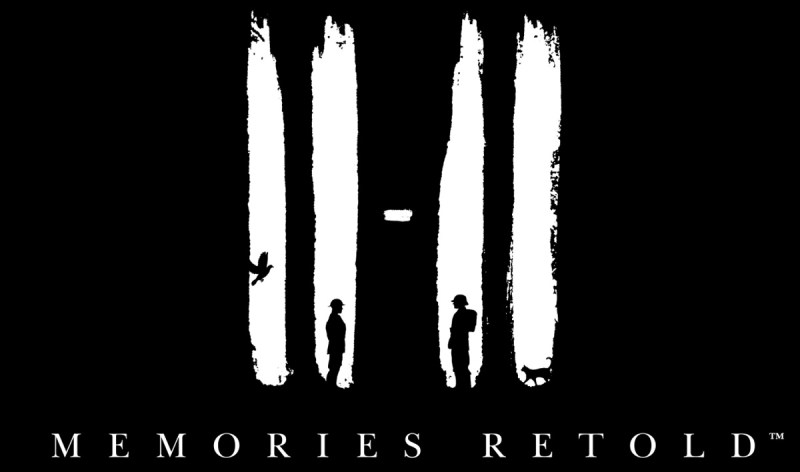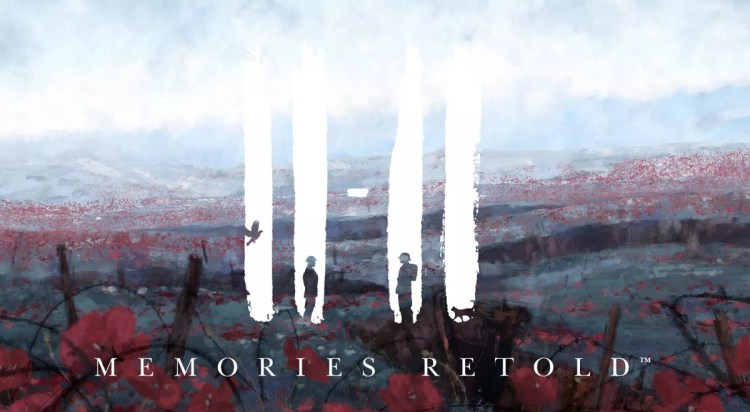GamesBeat: There was a good talk about GDC about the depiction of war in games. One of the developers making the ArmA series, these ultra-realistic military simulations—they have a division of the company that just makes training sims for the military. He was a veteran of Afghanistan, and he said that when he was there, there were people who would literally say, “I didn’t know I’d be doing this. I thought I’d be doing some Call of Duty shit.” The completely wrong impression of what war is like.
Fanise: I don’t judge. We need fun experiences as well, and shooting, as an activity, is a lot of fun. Shooting targets is fun. But shooting humans, if we’re talking about young people, in their minds, what is that like? Why is there always a need for a bad guy, the Germans or the Russians? Life isn’t really like that. It’s interesting to question that a bit.
GamesBeat: Was it easy to find a home for the game, with Bandai Namco?
Fanise: That’s been the big surprise with this game. We started to work with Aardman on the concept, the story, the look, but eventually we needed money to make it. I saw the Bandai guys at the Nordic games conference in Sweden. I told them about the idea, just the idea, and they said, “Yeah, this is good. We need that in our portfolio.” I was surprised. I said, “Are you sure you want to make this?”
They’ve been doing it in the best possible way. We have the actors. The music is by a symphony orchestra in London. We recorded at Abbey Road. Everything is super massive now compared to the size of the game itself. It’s a big chance to be able to do this. At the beginning, I just wanted to use gibberish voices, because it’s cheaper. It’s simple. Then they said, “No, let’s record real voices.” Again, I asked, “Are you sure? There’s a lot of lines of dialogue.” But we decided to go all the way and be true to history. Each character will speak their own language, so the Germans will speak German.
GamesBeat: The choice of the poem, In Flander’s Fields, how far back did that go for you? Did that encapsulate something you wanted to convey?
Fanise: It’s a very famous poem in the United Kingdom. People learn it school. In France we don’t study poetry, though, which isn’t good. It’s actually written by a Canadian soldier, so I thought, “This is it. This is where it happens.” The emotion of the poetry is very strong. I hope the game will be a bit like that, a visual poem of World War I.
We were thinking that way from the beginning. It was a big challenge, because when we started to work on the shaders for that look, the painterly look, it was very complex. It took months and months to get to a point where, “Okay, it looks like a painting. It’s not too blurry.” We’re still tweaking it right now. There’s a lot of work left. But that might be why there haven’t been any games that look like this before.
GamesBeat: Would you describe this is belonging to any particular category? Is it just a game about peace?
Fanise: That’s a nice one. A new genre.
GamesBeat: Not many games in that genre.
Fanise: I think I’d just call it a narrative game. It’s good now that we have this category where it’s not just about activity. I don’t care so much about activity, about gameplay. I want to tell a story. Games like Edith Finch, like Firewatch, these games have asked us, “Why should you put a puzzle or something in there if you don’t need to?”
That’s a change from Valiant Hearts, because we put a lot of puzzles in Valiant Hearts. We started to do the same here, but then we thought, “Do we really need this? What’s the point of this?” Sometimes we have puzzles because it’s fun to do that, but if it’s too complex, we’re taking it out. We took out a lot of things. Now it’s more about—one of the designers said one day, “This game should be as simple as turning the pages of a book.” If you can’t turn the page of a book you’re reading, that’s not a good thing.

Above: 11-11: Memories Retold
GamesBeat: How big is the team now?
Fanise: At DigiXart we’re just 15 people, and we have about 15 people at Aardman as well. That’s quite big for an indie type of game, but quite small compared to a triple-A game. It’s a size I really like. It’s why I left Ubisoft. I wanted to get back to having my hands in the dirt, doing stuff every day, removing all the layers of people that slow down the process.
It’s very creative. It’s a very collaborative process. Everyone is involved in the story. The music composer is involved in the story. Everyone’s on board. We brainstorm. We modify. No one guy decides everything. I’m just a coordinator. It’s been a great experience.
GamesBeat: How soon do you expect it to come out?
Fanise: I’d like it to come out on 11/11, but that’s a Sunday, and we can’t launch a game on Sunday. So it’ll be November 9 on the PS4, Xbox, and PC. That’s a big challenge for a small team, to take care of the technical requirements on all the consoles, but we’ll get there. We’ll working really hard for that. I actually feel a bit guilty to be here at E3 having fun. Everyone is working really hard.

